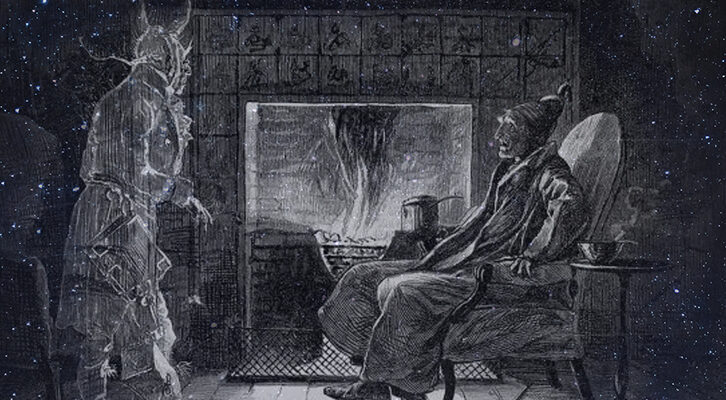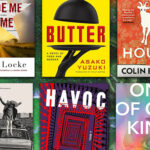Patricia Engel on Writing the Shifting Identities of
Diaspora Life
Jane Ciabattari Talks to the Author of Infinite Country
In an essay on great novels of exile and dislocation for Electric Lit, Patricia Engel writes that she finds the phrase “immigrant experience” reductive, noting, “For all its elasticity, the English language is limited in its ability to convey the migratory journey of geography and of the interior, and the spectrum of related traumas that transcend generations, imprinting itself on both the individual and on the collective. For now, let’s simply call this disassembly of the heart and excavation of a new identity in an unknown place irrespective of the events that lead up to it, exile, which comes to us not only in the social and political sense but in the emotional, the spiritual, the familial; the virtual undoing of the self in order to exist in a new life.”
Engel’s new novel, Infinite Country, explores this “undoing” as it affects several generations—US-born teenaged Talia in Bogotá, her US-based mother Elena, and her father, Mauro, who was deported to Colombia after the family came to the US. Mauro urged Elena to stay in the US. But things weren’t so simple. “During the years Elena and Marco contemplated staying in the country and the threat of being caught and sent back, they thought only of their lives lived here or lived there, not a fractured in-between. It never occurred to them their family could be split as if by an ax,” Engel writes. Her polyphonic, multigenerational new novel offers an intimate portrait of this splitting, with all its regrets and opportunities for renewal.
*
Jane Ciabattari: What inspired Infinite Country, your fourth novel? When did you get the first inkling that you’d write this book? How long did you work on it? How much research was involved?
Patricia Engel: All of my books are rooted in some aspect of my reality, the people in my orbit, and my preoccupations, such as how we navigate diaspora. All of my life is a process of research. Much of Infinite Country came from years of traveling in my parents’ homeland of Colombia, an endless source of inspiration for me. I always knew I’d write this particular book about a mixed-status family but it took some time to crystallize how I’d go about it. The actual drafting to completion of the novel took about three years.
JC: To what extent did you draw upon your own family background in writing Infinite Country? And from people you know who are dealing with the ongoing brutality of life among the undocumented today?
PE: Infinite Country is my most personal novel in how it gets at the complex choices and feelings that result in what we recognize as a diasporic existence. Bogotá is my mother’s hometown and a place where I still have a lot of family and I’ve always felt very moved by the Andean topography. Setting the novel there was an easy decision. My own family has undergone immigration’s split to our family tree, the sudden change in the course of our family history. It’s our story and that of countless other families. And the decision to emigrate is often a reluctant one that comes paired with doubt and regret.
People close to me have been challenged by the injustices of unstable and unjust immigration laws that fracture families indefinitely, administrations that criminalize people for doing what is only a natural instinct; that is, seeking better resources and opportunity, which is literally how mankind has ensured its survival. I wrote this book out of love for them.
JC: Your opening chapter begins, “It was her idea to tie up the nun.” You describe Talia at fifteen, escaping from the girls’ prison school for youthful offenders with less than one week to go before she is “get back to Bogotá, to the airport, and out of Colombia.” She’s hoping her father Mauro, who is working as a janitor, can help, but he has exhausted his resources. “Liberating herself from the prison, and from the country would be up to her.” And so she sets out to escape to the US, where she was born, to rejoin her mother, brother and sister. How does Talia understand the US, the homeland she left as a baby?
PE: I think Talia understands the US in the same way all of us who are transnational understand that we are of more than one place, that we cannot be defined by passports, borders, or papers with expiration dates. Talia has lived most of her life apart from her mother in the US, with her father and grandmother in Colombia, so she’s pulled between the opposing forces of birthplace and ancestral homeland, mother and father, past and future.
JC: You alternate the riveting tale of Talia’s journey with the backstory of her parents—their love affair, their journey to the US, the complexities of this family’s life, the reason her mother Elena sent her back to Bogotá as a baby to be raised by her mother Perla, why Talia is returning to the US now—in seamless transitions. Did you have this structure in mind from the beginning? How long did it take to sort all of this out?
PE: The structure evolved over the course of the first few revisions. I knew I wanted a multitude of voices, but also filtered through the perspective of a person who is the family true-teller, a documentarian of sorts. I think there’s someone like that in every family, who feels the burden of being the reliable witness on behalf of the collective.
JC: Elena muses about the decision she and Mauro made to send their youngest, baby Talia, back to Colombia, and wonders if she made a mistake (“She doubted her decision every day since…”). She sees the irony (“It had been Mauro’s idea to leave Bogotá; Elena only followed”) and expresses concern for the future (“It’s better to invest in this new life, because if you return to the old one, in the future your children may never forgive you”). Living daily with these questions seems to make her life difficult. What keeps her spirits up?
PE: I’m not sure her spirits are ever “up” in a sustained way. As the years wear on, she runs on faith, on hope, pushing through uncertainty and regret over her choices, fantasizing about her family being reunited one day. Immigration is never a sure thing. It’s often fraught with ambivalence and unbearable homesickness. But through it all, Elena, like so many others, keeps moving forward in order to provide for her family, because the alternative is even more precarious or uncertain. The migratory state of being, with its fissures and risks, becomes the devil she knows.
JC: You’ve written movingly about incarceration (Carlito in your novel The Veins of the Ocean, which won the 2017 Dayton Literary Peace Prize, is serving a death sentence). In Infinite Country, you open with Talia in a girls’ prison school, and later you describe Mauro’s months in detention before he’s deported to Colombia. What draws you to write about imprisonment?
PE: I grew up with incarcerated family members. I understood the nuances of what prisoners and prison families experience in a way that most children do not, blurred moral lines, the human capacity for doing harm. My explorations of what captivity and imprisonment mean in relation to the dignity of the human experience emerged from there. I’m also drawn to other types of imprisonment, such as the self-imposed, the personal exiles of shame, isolation, regret, and of course the literal, social, and emotional confinements of immigration and displacement.
JC: Talia’s sister and brother have a perspective late in the novel. Her brother is beaten by classmates, and describes trying to “perform Anglo.” Her sister writes, “I’ve had borders drawn around me all my life, but I refused to live as a bordered person. I hate the term undocumented.” While Talia is leaving Colombia, they are experiencing the US after the 2016 election. Is it a surprise that she’s jealous of Talia? How does the younger generation in the US find a sense of belonging, a new life?
PE: There is no singular experience to being diasporic or undocumented, or part of a family of mixed migratory status. These three siblings show how in one family there exists a spectrum of perils, consequences, and rewards, and each child internalizes the results of their parents’ decisions to come to the US and stay here in differently.
I’m drawn to other types of imprisonment, the self-imposed, the personal exiles of shame, isolation, regret, and of course the literal, social, and emotional confinements of immigration and displacement.JC: You mentioned Romain Gary’s The Life Before Us as one of your favorite novels of exile and dislocation. Have you seen the new film version (The Life Ahead), the third version of the story of Madame Rosa and her charges, with Sophia Loren and Ibrahima Gueye, directed by Loren’s son Edoardo Ponti? What do you think of its portrayal of a sense of exile, especially emotional exile?
PE: I have not yet seen the new film adaptation but I’ve been meaning to. What I love about the novel is that it depicts what are essentially overlapping exiles, people from different communities and nations, immigrants, the socially exiled, and how they form another transient nation on the edges of Paris. I grew up among immigrants from all over who may have had cultural differences but who bonded over the shared loss of homeland and uneasy footing in this new country, fueled by hope and sacrifice. In The Life Before Us, Madame Rosa is a Holocaust survivor, which introduces trauma as another type of emotional or corporal exile, and that of the narrator, Momo, who is not even aware of his true identity or age. In this way, secrets and unspoken truths are another layer of exile and expulsion.
JC: Which writers do you read for inspiration, for craft, for sustenance?
PE: For craft, I am very excited to read Matt Salesses’s new book, Craft in the Real World, and I adored Edwidge Danticat’s Create Dangerously and The Art of Dying, Alexander Chee’s How to Write an Autobiographical Novel, and Orhan Pamuk’s The Naive and Sentimental Novelist. Other writers I look to with great admiration are Toni Morrison, James Baldwin, Louise Erdich, Luis Alberto Urrea, Viet Thanh Nguyen; the Colombian writers Laura Restrepo, Jorge Franco, Hector Abad, Santiago Gamboa, and Piedad Bonnett; and poets such as Natalie Diaz, Carmen Giménez Smith, Li-Young Lee, Eduardo C. Corral, and Jericho Brown.
JC: What are you working on now?
PE: I’m putting finishing touches on a short story collection that will follow Infinite Country, and have also started work on a novel set in New Jersey.




















